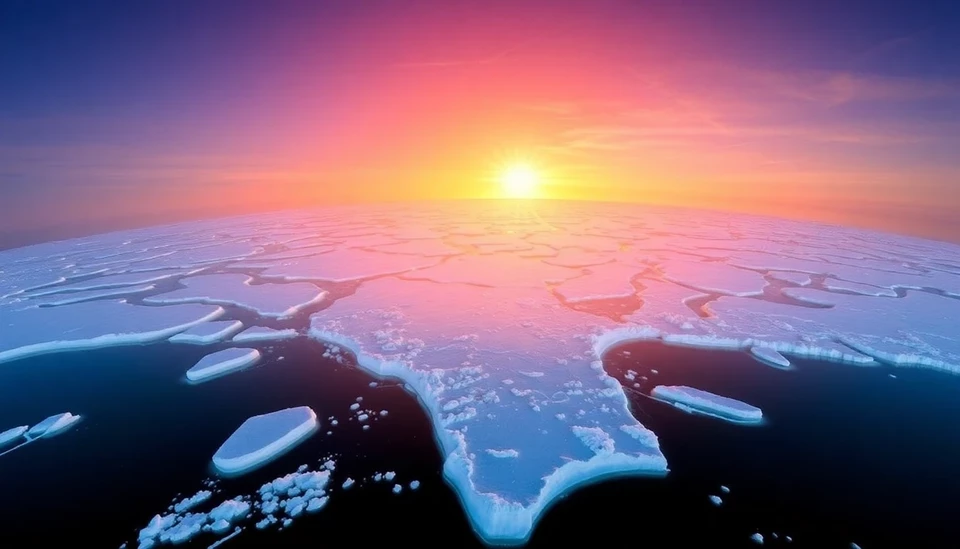
In an alarming development for the Earth's climate, Arctic sea ice has plummeted to a new record low during the winter months, underscoring the ongoing impacts of global warming. Researchers have reported that this year's measurements show a staggering decline in sea ice mass, a critical indicator of the health of our planet's ecosystems.
The National Snow and Ice Data Center (NSIDC) has identified that the sea ice extent in March 2025 was the lowest recorded since satellite observations began in 1979. The current level of ice coverage is notably less than the previous record low observed in 2017, demonstrating a concerning trend of diminishing ice that is exacerbated by rising global temperatures.
According to research, this pattern is not merely a seasonal fluctuation but reflects deeper systemic issues related to climate change. The increase in greenhouse gas emissions and the consequent warming of the Arctic are accelerating the melting process, creating a feedback loop that could have severe repercussions not only for local wildlife but also for global weather patterns.
Climate scientists emphasize that the reduction in sea ice impacts various systems, from weather patterns in the mid-latitudes to the migratory paths of wildlife that rely on the ice for breeding and feeding. This significant loss of sea ice could further amplify warming trends, leading to more extreme weather events worldwide, such as heatwaves, storms, and unpredictable precipitation patterns.
Furthermore, the record-low sea ice extent brings attention to the shifts within the Arctic ecosystem. Species such as polar bears and seals, which depend on solid ice surfaces for rest and breeding, face critical challenges. Their hunting grounds are disappearing, which could lead to a decline in their populations and disrupt the entire food chain in the region.
In light of these findings, scientists are urging global leaders to take urgent and coordinated action to tackle climate change. International agreements to limit carbon emissions and protect vulnerable ecosystems are more crucial than ever. As the ice continues to dwindle, the call for a sustainable future becomes more pressing.
The recent data serves as a stark reminder of the urgent need for collective efforts towards climate mitigation, as the ramifications extend far beyond the Arctic, posing threats to global stability and biodiversity. The world is watching as the situation evolves, hoping for effective solutions to reverse this concerning trend.
With the stakes at an all-time high, communities, policymakers, and individuals are being urged to take action, highlighting the importance of environmental stewardship and urgent climate action moving forward.
#ArcticIce #ClimateChange #GlobalWarming #EnvironmentalImpact #SeaIceLoss #PolarBears #ClimateCrisis #Sustainability
Author: Megan Clarke




